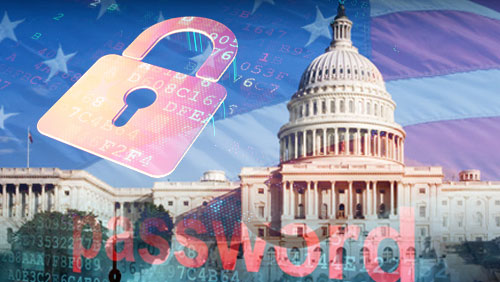 Privacy doesn’t mean what it used to. That doesn’t stop the U.S. government from trying to eliminate it altogether. In the persistent pursuit of a level of national security that no modern global empire can probably ever truly enjoy, America’s intelligence apparatus is carrying out a full-fledged war on privacy, in the real world and cyberspace as well.
Privacy doesn’t mean what it used to. That doesn’t stop the U.S. government from trying to eliminate it altogether. In the persistent pursuit of a level of national security that no modern global empire can probably ever truly enjoy, America’s intelligence apparatus is carrying out a full-fledged war on privacy, in the real world and cyberspace as well.
Facial recognition technology is the new frontier for an America still spooked by the threat of terrorism, and the Federal Bureau of Investigation says it’s now fully online with the best version of the technology yet. The Next Generation Identification system is touted as “a significant step forward for the criminal justice community in utilizing biometrics as an investigative enabler,” using mugshots and other photo databases to create “an investigative tool that provides an image-searching capability of photographs associated with criminal identities.”
The allegedly groundbreaking system generates a list of 50 potential matches for a face, a list which may include the actual suspect as little as 85 percent of the time – and even that low figure is an improvement on the facial recognition tech that was used when hunting for (and failing to find) the Boston Marathon bombers. So where do all those other photos come from? Of the 50 states, 26 have signed on to participate in the new system – and the data they’ve provided has some critics saying that innocent Americans are going to get caught up in criminal investigations as a result.
That’s a particular concern because the contractor responsible for the facial recognition software, MorphoTrust, is also the contractor maintaining DMV databases in 35 states, as well as enormous databases for the Departments of State and Defense. The Electronic Frontier Foundation noted that this could lead to a situation where “it is quite possible that the face templates at each of these disparate agencies could be shared across agencies — raising again the issue that the photograph you thought you were taking just to get a passport or driver’s license is then searched every time the government is investigating a crime.”
Cyberspace, too, is becoming a battleground for privacy. In the wake of Edward Snowden’s revelations that the U.S. government uses essentially every technological means at its disposal to spy on the world at large, the use of encryption and other privacy-enhancing technologies to protect online communications have hit new highs. Virtual private network (VPN) usage has shot up, and the EFF’s recent Tor Challenge featured three times as many participating relays as when it first ran in 2011. That has the government looking for ways around all the technological protections the people have mustered in the face of the all-seeing eye.
The Department of Justice is looking to make a target of anybody who uses Tor or VPNs. The vehicle for this power grab is a proposed change to Rule 41 of the Federal Rules of Criminal Procedure, which governs how the FBI uses Network Investigative Techniques – what everyone else calls “hacking.” At least one analyst says that the current wording of the proposed new rule “might give the FBI the power to use virtual force on any PC using anonymizing services.”
In practice, this means anybody using Tor, VPNs, proxies, or other privacy-protecting would be fair game for all sorts of security breaches – in the name of national security, of course. There are two major concerns. The first is that if the FBI doesn’t know where a computer is located and it launches an attack while fishing for information, that computer could be located in another country – and the FBI’s intrusion could spark a war. And the second is the FBI fishing around in Americans’ computers without any probable cause at all, looking for evidence of whatever crimes it can find. That’s usually called a “fishing expedition,” and the FBI wants to make it justifiable just because someone uses privacy-enhancing software.
If there’s any good news right now, it’s that the corporate entities that have been the conduits, wittingly or unwittingly, for most of the surveillance are starting to blush back against it to some degree. Google and Apple have both announced that, by design, they will no longer be able to unlock encrypted devices in the newest versions of their mobile operating systems. Still, that’s very little solace to the average American online, who doesn’t support the extremists the government is after but still wants to keep his communications to himself. The government has a tool for encrypted phones: they can just order you to unlock it yourself or face a contempt of court charge.
The nominal target may be extremists, but the end goal of programs like these is to make privacy, a long-treasured right in an open society, a thing of the past. Technology might be the only tool everyday people have to keep their privacy, but right now it seems like the forces aligned against them have the upper hand with tech.